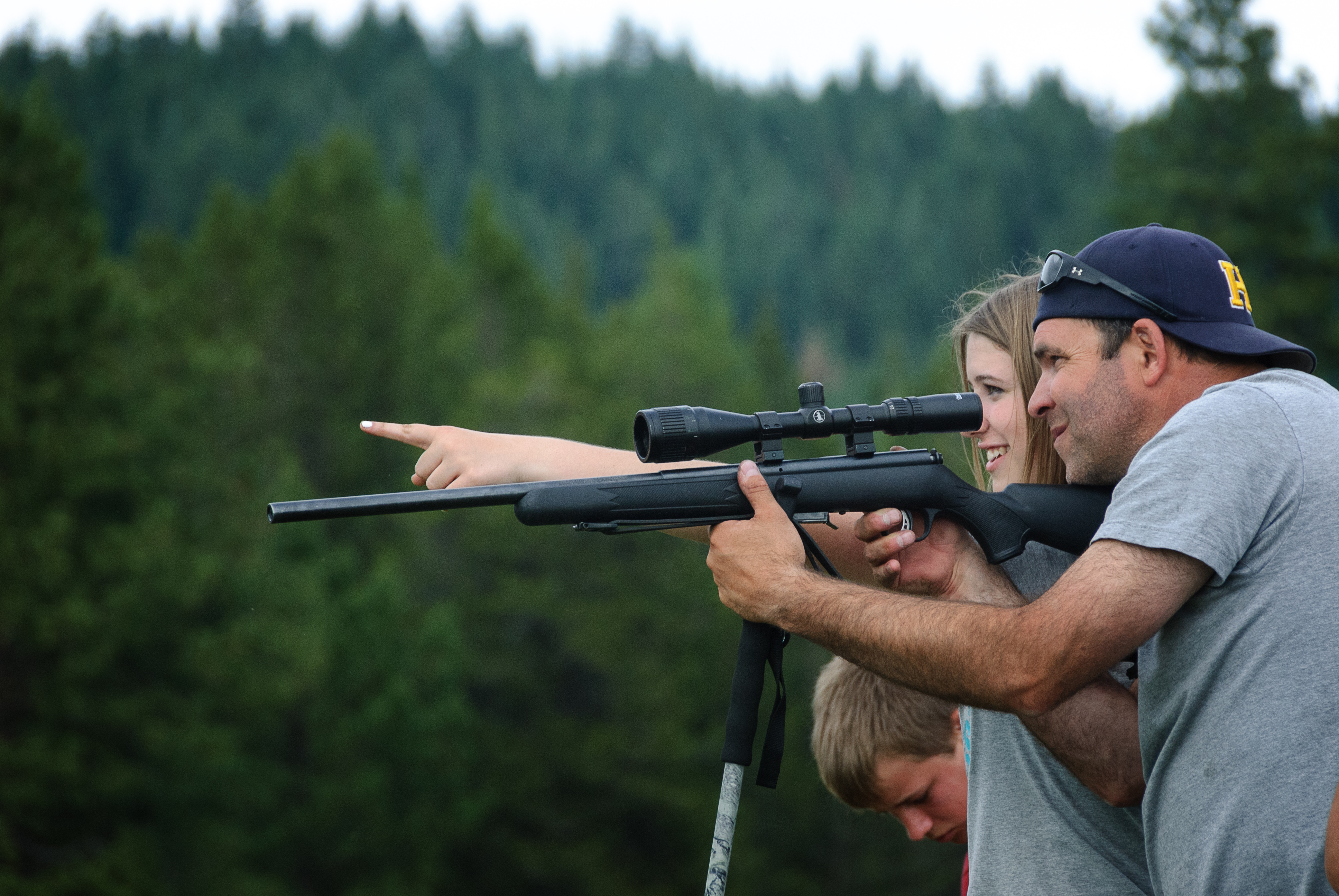The mass shooting in Las Vegas earlier this week has once again thrust gun control into the center of American life. It was committed by a man, as 98 percent of mass shootings are. Though often overlooked, research suggests that shootings like these—and support for guns themselves—need to be examined through the lens of gender.
According to the latest data, 55 percent of men and 39 percent of women in America support gun rights, and 39 percent of men say they own a gun, compared with 22 percent of women. University of Arizona sociologist Jennifer Carlson, author of Citizen-Protectors: The Everyday Politics of Guns in an Age of Decline, tells Thrive Global that what it means to be a man in many parts of America is changing, and that’s reflected in trends in gun ownership.
Current estimates say there are 265 million privately-owned firearms in the U.S. They’re relatively concentrated: about half of the country’s guns are owned by just 3 percent of the population. These mostly male, mostly white super-owners have 17 firearms each on average, according to one Harvard-Northeastern survey. In 1999, 26 percent of Americans owned and carried guns; that number is up to 48 percent today.
Carlson is a sociologist, not an economist, and her work is focused on understanding the worldview of the population that she studies. The product of 60 interviews done in 2010 with open or concealed carriers in Michigan, Citizen-Protectors takes that “post-industrial state” of Michigan to be a representative sample of the national trend in financial and professional instability, with a major city that epitomizes the Rust Belt. In Michigan, men are now four times more likely than women to have a permit to carry a gun, and FBI background checks for firearms purchases in the state nearly doubled from 1999 to 2016, from 300,000 to nearly 600,000.
The Detroit area was once the place where American ideals of the middle class were embodied, where plentiful manufacturing jobs delivered a sense of identity, security and the ability to provide for a family, all without needing an advanced degree. Manufacturing declined over the past few decades thanks to automation and outsourcing, a trend that has hit men hardest. Not only has this helped spur the opioid epidemic and other “deaths of despair,” but it’s also led to a change in notions of manhood, Carlson says, where the role has gone from provider to protector.
“It’s actually married men who are more likely to own guns,” Carlson says. After region, marital status is the second-best predictor of gun ownership. “It really speaks to that shifting context of what it means to be a head of a household—what does masculine identity mean when breadwinning isn’t possible?”
Yes, guns can kill, and they stand as symbols of power and domination. But they’re also “folded into ideologies of masculine protectionism,” she says. They help men feel more capable of protecting their home, Carlson says, which is so frequently termed as a castle. (Tellingly, some legal scholars argue, it’s self-defense to use violence to protect your home, though similar violence outside the home wouldn’t be protected by a claim of self defense.) “My role in the family is to be the protector,” she says her interviewees tell her. “My relevance is to be the protector.” While “gender ideologies” tell us that women are more oriented towards taking care of people around them, Carlson says that her and other’s research indicates that women own guns to take care of themselves.
The link between men and firearms is not a new or subtle one. Arie Kruglanski, a psychologist at the University of Maryland who studies violent extremism and identity, says the U.S. has a unique culture of glorifying guns and viewing them as effective tools of self defense. It goes back to citizen militias and the Second Amendment, he told Thrive Global , and the cultural heritage of the Wild West, where in the absence of law and order, matters were settled with the barrel of a gun.
At the center of Kruglanski’s study of extremism is the “significance quest”: everyone has a need to feel significant in some way, and when people are traumatized, rejected, abused or otherwise devalued, they’re likely to feel the need to re-assert themselves. In a 2016 paper, Kruglanski and his colleagues analyzed almost 1,500 Americans—90 percent of whom were men—who committed ideologically motivated crimes. They found that being on the receiving end of abuse, failing at work and getting rejected in relationships were all linked to a greater tendency to commit acts of political violence.
There may be something similarly at work with the embrace of firearms: in a forthcoming paper with his collaborators Pontus Leander and Wolfgang Stroebe of University of Groningen in the Netherlands, Kruglanski surveyed gun owners both before and immediately after the 2016 Orlando nightclub shooting. The results indicated that when gun owners were manipulated in experiments to feel a sense of failure or had experienced failure in their own lives, they viewed guns as more legitimate and effective tools of self defense compared to owners who weren’t stressed or exposed to failure. “It appears that when people who partake of the gun culture experience a stress or a loss of significance,” he says, “they turn to guns as a tool to restore their sense of mattering and importance.”


